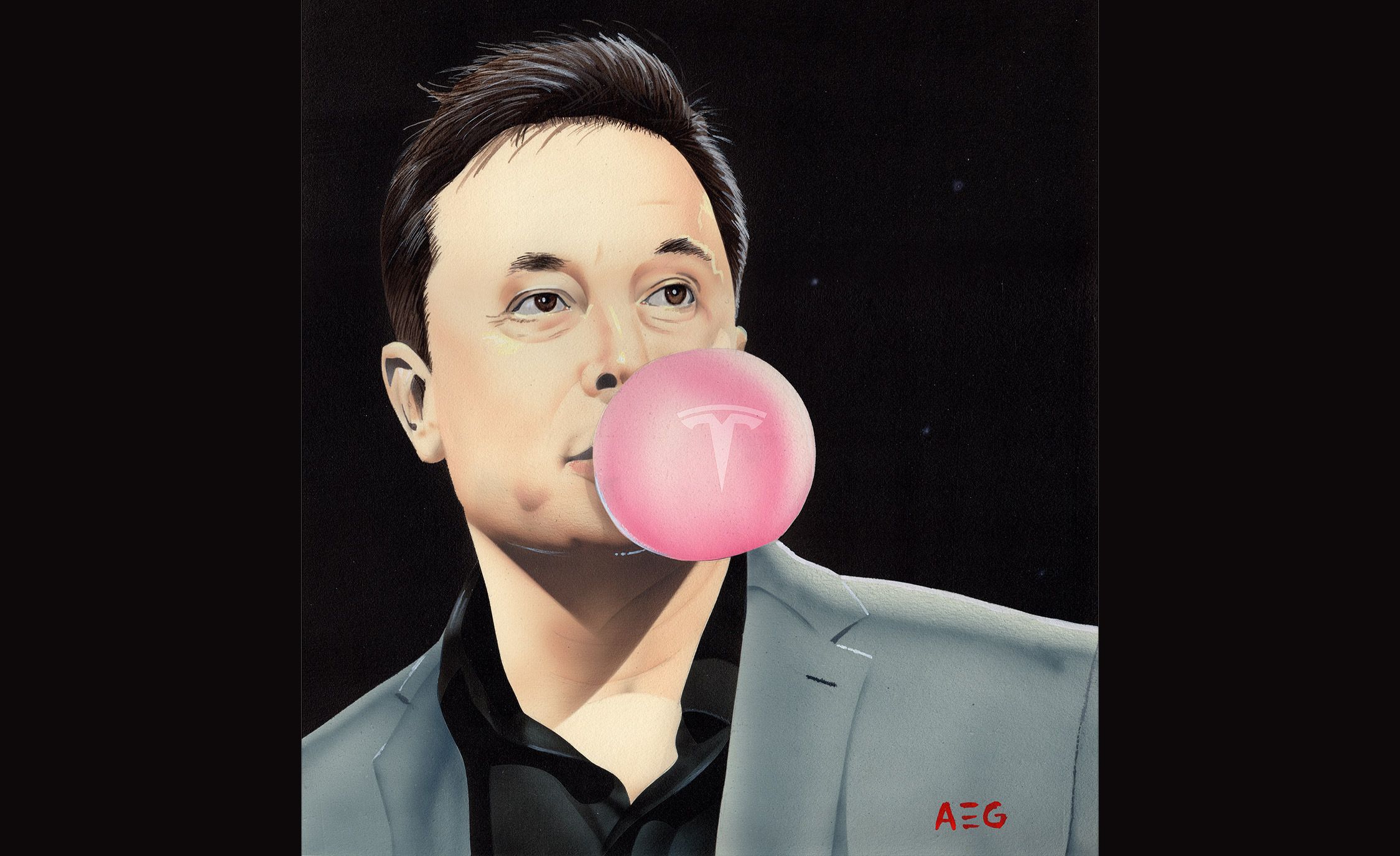
Many investors look at Tesla more as a technology company than as a manufacturer, and tech companies are generally valued more highly than carmakers. Still, Cornell and Damodaran set to find out how market sentiment might be affecting Tesla’s stock price. They looked at Tesla’s returns for every trading day between March 22, 2013, and February 26, 2014, as well as news about the company during that period, including reports of how much money the company was making—or, as was most often the case, how much it was losing. “If the market is rational and relatively efficient, then the run-up in the price of Tesla stock . . . should be the result of information that arrives during that time period,” Cornell and Damodaran wrote in a paper they posted online in April 2014. And yet, “there is no new-product introduction. There is no proposed acquisition or other transaction. There is no announcement of significant new technology . . . In fact, in several cases, the main news story was the rise in the stock price itself.” Tesla shares have not fallen below $141 since, reaching a high of $389 in September 2017.
from Car and Driver BlogCar and Driver Blog http://ift.tt/2E96t8A
via IFTTT
0 comments:
Post a Comment